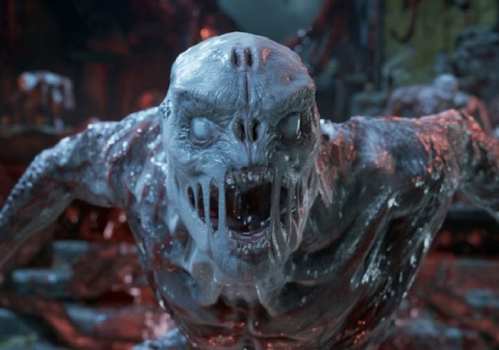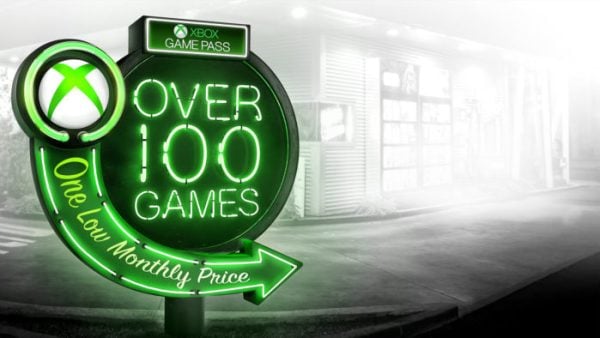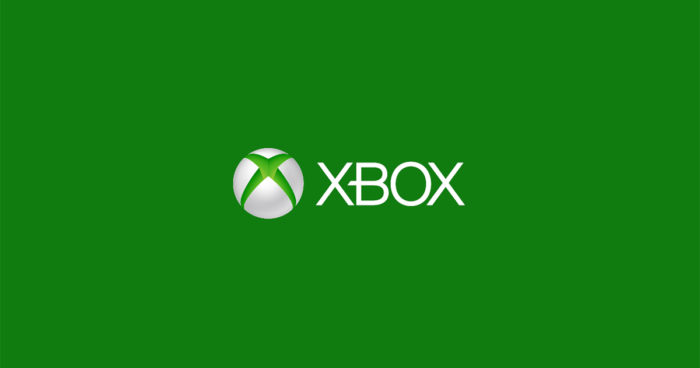Cloud-Powered Gaming

Now, if the Xbox Scarlett rumors are to be believed, Microsoft may already be very much heading down the path of cloud-powered gaming with the next generation Xbox. That said, we feel like we’ve heard all of this before.
Remember back when Crackdown 3 was first announced and Microsoft touted that the game would use “the power of the cloud” for next-level destruction? Well, we’re kinda still waiting to even get our hands on Crackdown 3, and since that 2015 announcement, it’s been reported that the cloud-powered destructive mayhem “was always going to be in the multiplayer,” separate from the traditional campaign.
However, with a clean slate at the start of a new console generation, and good ol’ Phil Spencer at the helm of the Xbox ship, it seems like the perfect point to really dive into this new realm of possibilities in video games. Though Crackdown 3 will surely be a test of how effective this technology is in the hands of consumers, if anyone has the assets, money, and infrastructure to implement it properly and push it to the next level, it’s Microsoft.
But do we really need cloud technology if the Xbox One’s successor is as powerful as we think it probably will be? Honestly, that depends on how much extra punch it can actually provide. We’re yet to have seen tangible examples of how the technology can enhance game performance this generation, let alone with the extra horsepower of the next.
However, Microsoft’s claim back in 2015 of making the Xbox One “13 times more powerful” is certainly lofty. With continued advancements in graphical processing, such as the GTX 2000 series’ Turing architecture, games could reach a whole new level of visual fidelity, physics, number of things going on on-screen at any given time, and plenty more.
Perhaps streaming technology could unlock those doors without having to pack-in hugely expensive GPU’s into the standard console package?
A Digital Trade System

Although it might sound like some kind of insane pipe dream, a digital trade system actually isn’t all that difficult to implement. All it would require is a system to value and retract game licenses from a player’s account, and provide them with the Xbox Store credit to put towards another digital title.
It’s literally the exact same thing as what you’re doing at GameStop or your preferred brick and mortar retailer, just with a digital code that says you own a game, rather than a disc.
Ever wondered why you can’t play your digital games sometimes when Xbox Live is having technical difficulties? It’s because it cannot verify you own the license. So, essentially, it’s something that Microsoft kind of has the foundations for in-place already.
Digital games are becoming more and more convenient as internet speeds, for the most part, continue to get faster. For many, the notion of leaving the comfort of their own home just isn’t worth the effort, particularly if they’re going to have to install whopping great day one updates once they have the disc, anyway.
Instead, having it pre-ordered, pre-loaded, and ready to go as soon as the clock strikes midnight increasingly makes more sense. No changing discs, no risk of damaging your discs, and another reason not to leave the house –score!
Exactly what kind of trade value you’d get on these digital games would, of course, be at Microsoft’s discretion. Nail this down, though, and it could finally be the turning point that digital games need to become a more viable way to buy games for most players.
An Expanded Game Pass Service

Xbox Game Pass is a fantastic service already. For a fairly low monthly fee, you’ve got a catalog of over 100 Xbox One and 360 titles you can download and play at your leisure. Sure, some eventually leave the service, but the fact that Microsoft’s first-party titles such as Forza Horizon 4, State of Decay 2, Halo Infinite, and Gears 5 are all on (or coming to) Game Pass make it a bit of a no-brainer if you’re an Xbox fan.
Heck, if you pick up just three Xbox One exclusives within a year for $60, you can save yourself money by subscribing to the service for $9.99 a month.
Currently, Microsoft’s ‘Netflix of video games’ service outshines Sony’s offering in PlayStation Now in terms of its current library and the promise of future top-tier titles. Doubling down on this service would not only be a smart business move but be an incredibly exciting prospect for Xbox players in general.
It doesn’t have to be a huge improvement.
Perhaps make some deals with third-party publishers to bring their titles to Game Pass on day-one? Doing so would not only make the service more appealing in general but would give the next generation Xbox a chance to steal back the third-party crown that Sony snatched off it at the start of this current generation.
Those Call of Duty, Destiny, Red Dead Redemption 2, Watch Dogs 2, and other blockbuster titles with exclusive DLC periods and agreements with Sony are a huge deal, and including just one or two of these for a limited time in Game Pass would be a massive boon to the next generation Xbox.
A Steady Stream of Exclusives

While not necessarily a ‘feature’ of the next generation Xbox, it’s without a doubt one of the most talked about aspects of the Xbox One, and one Microsoft must finally put to bed. With the announcement that Microsoft had acquired five new studios to join the Microsoft Game Studios family, it certainly looks like it’s moving in the right direction to resolve this.
But please, please Microsoft, let’s not have a repeat of the delays that Crackdown 3, Cuphead, and the oddly quiet Capybara Games’ Below have suffered since their initial announcements!
Part of that comes down to something that Microsoft Game Studios’ general manager Shannon Loftis acknowledged as a mistake with Crackdown 3 in announcing it too early. However, with more first-party studios working on titles just for the next generation Xbox, we’ve got high hopes that it’ll be a completely different story when they finally roll around.
Combine more frequent exclusive releases with the value offered in Game Pass, and you’ve got a formidable combo to tackle whatever Sony brings to the table with the next generation PlayStation.





Published: Oct 17, 2018 09:23 am